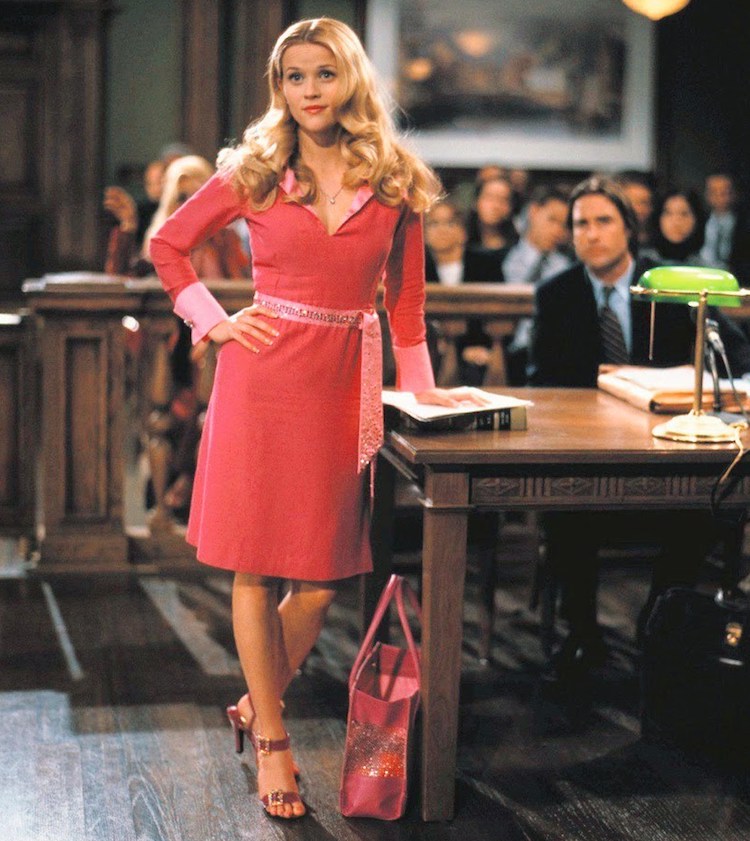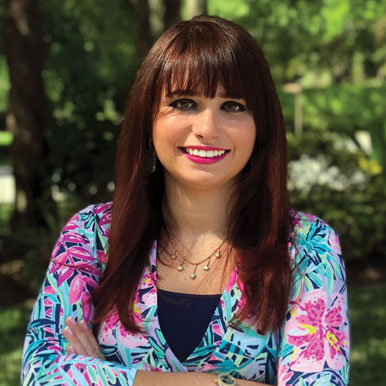How ‘Legally Blonde’ influenced a generation of women lawyers

Reese Witherspoon portrays Elle Woods in Legally Blonde. Photo from MovieStillsDB.com.
“What, like it’s hard?” Elle Woods famously quipped when her ex-boyfriend Warner Huntington III was shocked to see that she was also a first-year law student at Harvard Law School.
And whether it is hard, or a way to downplay our struggles to get to the point of success we’ve reached, Elle’s quotable one-liners from the movie Legally Blonde permeate pop culture, whether they are appearing on college grad caps or in memes.
Legally Blonde burst onto the big screen in 2001. What we once saw as another sweet rom-com about sorority girl Elle Woods tackling Harvard Law to get the love of her life back became something so much more to female law students and lawyers. Years later, Elle remains influential for women entering the legal profession and women lawyers alike.
Reese Witherspoon, the actress who played Elle, told the Wall Street Journal Magazine in a 2017 article, “At least once a week I have a woman come up to me and say, ‘I went to law school because of Legally Blonde,’ ” she said. “It’s incredible. … You can be unapologetically feminine but also smart and driven.”
Like the women Witherspoon meets, I occasionally meet a colleague who sheepishly admits to going to law school because Legally Blonde inspired her. One of my lawyer friends even got a Chihuahua because she was inspired by Elle’s Chihuahua, Bruiser.
A search on social media shows a plethora of young women who relate to Elle, whether it’s that they thought law school or the LSAT were now doable after seeing the film, or were looking to her for fashion advice, or they used the film to prepare for law school. I remember joking with friends that Legally Blonde did not prepare us for how difficult law school is.

Haley Moss. Photo courtesy of Haley Moss.
Still, Elle’s story isn’t that different from our own. A lot of professional women have been underestimated in life—after all, the profession still has rampant gender bias, and women still make up the minority of lawyers.
That moment when Warner said Elle wasn’t smart enough for law school was a catalyst in the movie (one often quoted on social media) and one of those experiences women lawyers can relate to: being seen as less competent, intelligent or being judged solely on appearances.
I’m one of those young lawyers and recent grads who loves Legally Blonde. I was my class commencement speaker like Elle was at the end of the movie. I tried my best to emulate her high pitched “We did it!” as a closing line and totally rocked a blush pink dress underneath my graduation robe.
I felt equally as powerful as she did when she walked out of the courtroom following a successful acquittal and smiled as big as she did when “Perfect Day” played once again after she tossed her cap in the air.
Elle essentially made it cool to be feminine and showed us what it was to be a strong, feminine, independent woman. In the end of the film, she rejected the guy she thought was the love of her life because she needed a boyfriend who wasn’t “such a complete bonehead.” if she was ever going to make partner in a firm by the time she’s 30.
Sure, Legally Blonde doesn’t completely depict law school or the profession accurately. No one I knew went from a 143 on the LSAT to a 179 in a matter of on-screen minutes.
There was an incorrect statement of a holding about subject matter jurisdiction following Elle’s first brush with the Socratic method. Elle was interning at a reputable law firm and able to take a case to trial during her 1L year. I still don’t know any 1Ls who had trial experience during the spring semester (even though it surely has its teachable moments), and yet we still love Legally Blonde.
Ultimately, the movie is more than another romantic comedy. It’s a nod to feminism, not judging women by appearances and, of course, women in law.
The ultimate verdict on the movie should be that you don’t need a man to succeed, you can still be feminine and strong if that’s your style, and you can always brush someone’s condescending doubt about your worth with a “What, like it’s hard?”
Haley Moss is an associate at Zumpano Patricios. She is the author of A Freshman Survival Guide for College Students With Autism Spectrum Disorders: The Stuff Nobody Tells You About! and a 2018 graduate of the University of Miami School of Law. Outside law practice, Moss is also an artist and autism advocate. Find her on Twitter at @haleymossart.
ABAJournal.com is accepting queries for original, thoughtful, nonpromotional articles and commentary by unpaid contributors to run in the Your Voice section. Details and submission guidelines are posted at “Your Submissions, Your Voice.”
Your Voice submissions

The ABA Journal wants to host and facilitate conversations among lawyers about their profession. We are now accepting thoughtful, non-promotional articles and commentary by unpaid contributors.

